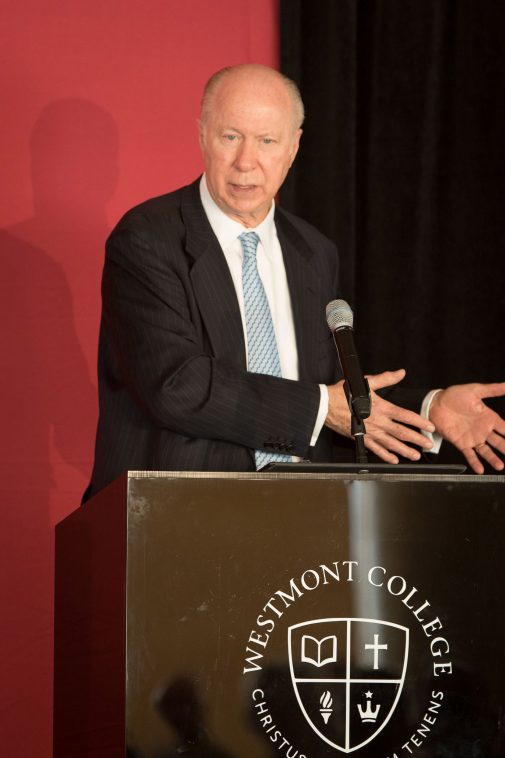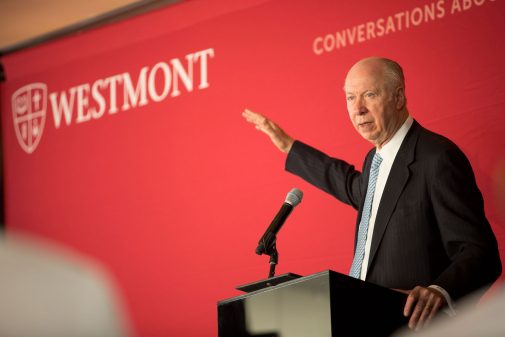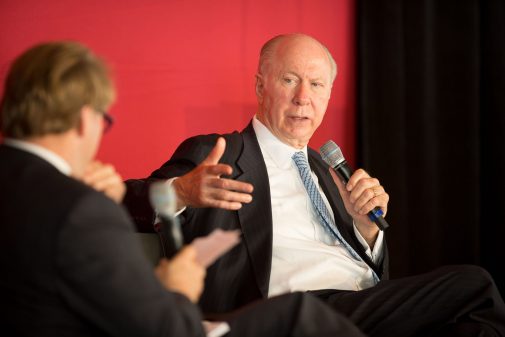Gergen Examines Reagan, Leadership
By
Westmont
 Given the current political landscape, David Gergen offered a voice of optimism as he spoke to 170 people about his experiences as former adviser to four U.S. presidents on Nov. 20 at the Coral Casino. The luncheon was part of the Mosher Foundation’s series on Moral and Ethical Leadership in American Society.
Given the current political landscape, David Gergen offered a voice of optimism as he spoke to 170 people about his experiences as former adviser to four U.S. presidents on Nov. 20 at the Coral Casino. The luncheon was part of the Mosher Foundation’s series on Moral and Ethical Leadership in American Society.
Gergen claimed his generation hadn’t done a good enough job, leaving the country too divided. “But it’s the next generation that offers much promise,” he said. “There is a kind of spirit similar to the WWII generation: a greater spirit of service, a greater sense that we need social change in this country, we need to reform institutions that have become decrepit. And there’s a willingness among a lot of these young people to step in.
Looking out at the sun-washed Pacific Ocean, Gergen recalled what a privilege it was for him to work with Ronald Reagan, calling the Gipper “the best leader in the White House since FDR.” “What we need to do is coach them and help them get along. Your leadership program here, encouraging a real focus on moral and ethical leadership, is exactly what the country needs.”
Gergen, a senior political analyst for CNN, says he learned more from Reagan than from any other president about leadership. “You don’t have to be the smartest person in the room,” he says. “Leadership is a far bigger issue and you not only have to have the quality of knowing yourself, but you have to have a passion for change and a passion for taking an organization or a group or a country someplace else. And you have to have the character. I worked for Richard Nixon. Believe me, character matters.”

He said Reagan kept the big picture steadily in his mind. “The place of the president, the leader, is not down in the boiler room, it’s up in the fo’c’sle. It’s up there saying ‘Here’s where we want to take the ship. Here’s the horizon we’re looking at. Here’s the direction we want to go.’ And that, to me, was the essence of Reagan. That he understood where he wanted to go. It was a rapidly changing world, but he kept steadily applying the principles and steadily going toward the goals that he wanted to achieve and he did it through compromises.”
The Westmont series continues Feb. 5 with Jack Rakove, winner of the 1997 Pulitzer Prize in History for his book, “Original Meanings: Politics and Ideas in the Making of the Constitution.”
Filed under
Academics, Campus Events, Faculty and Staff, Featured, Giving, Lectures, Press Releases